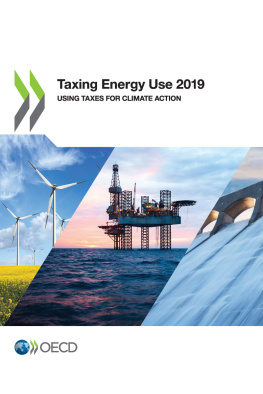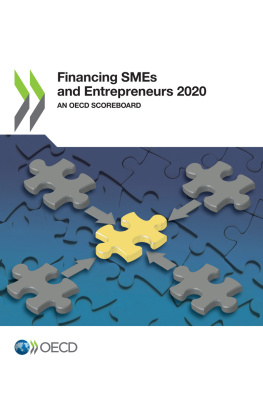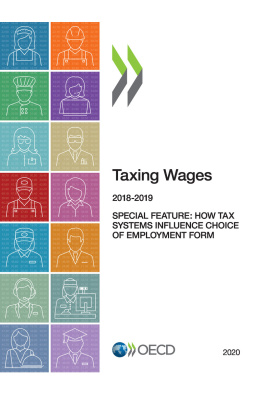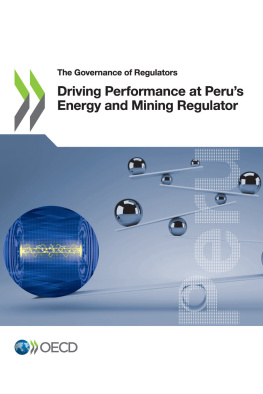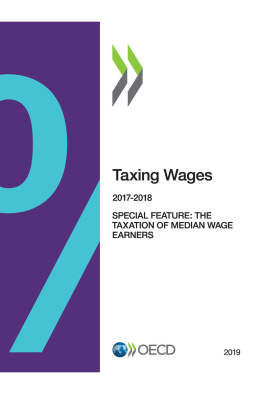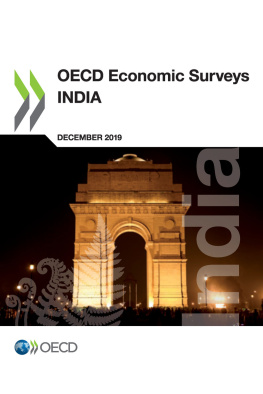OECD - Taxing Energy Use 2019
Here you can read online OECD - Taxing Energy Use 2019 full text of the book (entire story) in english for free. Download pdf and epub, get meaning, cover and reviews about this ebook. year: 2019, publisher: OECD Publishing, genre: Politics. Description of the work, (preface) as well as reviews are available. Best literature library LitArk.com created for fans of good reading and offers a wide selection of genres:
Romance novel
Science fiction
Adventure
Detective
Science
History
Home and family
Prose
Art
Politics
Computer
Non-fiction
Religion
Business
Children
Humor
Choose a favorite category and find really read worthwhile books. Enjoy immersion in the world of imagination, feel the emotions of the characters or learn something new for yourself, make an fascinating discovery.
Taxing Energy Use 2019: summary, description and annotation
We offer to read an annotation, description, summary or preface (depends on what the author of the book "Taxing Energy Use 2019" wrote himself). If you haven't found the necessary information about the book — write in the comments, we will try to find it.
OECD: author's other books
Who wrote Taxing Energy Use 2019? Find out the surname, the name of the author of the book and a list of all author's works by series.
Taxing Energy Use 2019 — read online for free the complete book (whole text) full work
Below is the text of the book, divided by pages. System saving the place of the last page read, allows you to conveniently read the book "Taxing Energy Use 2019" online for free, without having to search again every time where you left off. Put a bookmark, and you can go to the page where you finished reading at any time.
Font size:
Interval:
Bookmark:
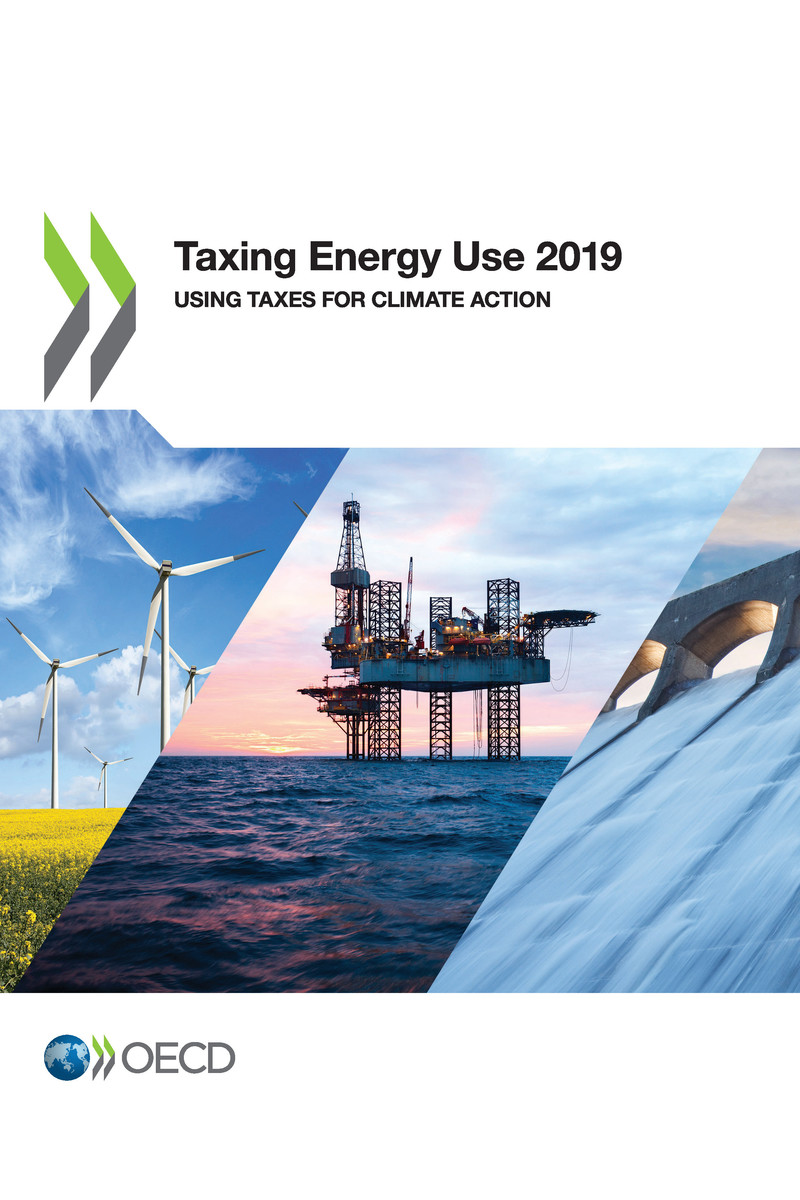
OECD (2019), Taxing Energy Use 2019: Using Taxes for Climate Action , OECD Publishing, Paris, https://doi.org/10.1787/058ca239-en .
Public pressure is mounting for action on climate change. Keeping climate change at bay in line with the goals of the Paris Agreement will require deep cuts in emissions. In the absence of decisive action, extreme weather events such as storms, floods, droughts and heat waves will become more frequent and severe, and rising sea levels will endanger coastal cities and entire island states. Against this background, it is disconcerting that energy-related CO emissions reached an all-time high in 2018.
While not in itself sufficient, taxing polluting fuels is an effective way to help curb emissions that harm the planet and human health. Well-designed systems of energy taxation encourage citizens and investors to favour clean over polluting energy sources. As a result, citizens and businesses will consume fewer carbon-intensive goods and services, and gradually transition to low or zero-carbon activities. Taxes on fuels equally discourage investments in carbon-intensive assets, such as coal-fired power stations, which reduces the risk of high adjustment costs in the future.
Raising the price of energy is a very effective way of reducing emissions but the impacts on households can be large. Some households may find that normal patterns of energy use become unaffordable. Many may find it difficult to cut energy consumption quickly, meaning that spending on other items falls. In general, care must be taken that energy price reform does not become unbearable. The OECD investigates the impacts of energy price reform, and finds that using a part of the revenues from higher energy taxes is often sufficient to ensure that energy affordability is maintained; broader revenue recycling strategies e.g., revenue transfers, or income tax reductions allow ensuring that decarbonisation efforts are equitable. The detailed stocktake of energy taxes in this report provides policy-makers with precise information to help identify the most effective and inclusive reform options.
The OECDs Taxing Energy Use 2019 shows that governments are not deploying energy and carbon taxes to their full potential. The report identifies avenues for policy reforms that will improve environment and climate outcomes while simultaneously boosting the performance of the fiscal system to promote equity, well-being, competitiveness, and efficient tax policy. The report presents new and original data on energy taxes and carbon taxes in OECD and G20 countries, and in international aviation and maritime transport. Tax rates and tax coverage are detailed by country, sector, energy source and tax type. The use of a common methodology ensures full comparability of tax rates and structures across countries. Summary indicators facilitate cross-country comparisons.
Taxes on polluting fuels remain too low to reduce the risks and impacts of climate change and air pollution. Seventy percent of energy-related CO emissions are not taxed at all. While all countries tax road fuel, 85% of energy-related CO emissions take place outside the road sector. Taxes only cover 18% of non-road emissions, leaving a tax of zero for the remaining 82%. Taxes on coal which is behind half of non-road emissions are zero or close to zero and lower than taxes on natural gas. For international flights and shipping fuel, taxes are zero. Only 3% of non-road emissions are taxed above EUR 30 per tonne of CO, a low-end estimate of the climate damage caused by a tonne of CO emitted at present.
The revenue potential from carbon pricing is considerable: raising effective carbon taxes to EUR 30 per tonne of CO for all energy-related emissions would generate around 1% of GDP worth of additional tax revenues across the 44 countries covered in Taxing Energy Use . Apart from providing countries with the means to manage the impacts of decarbonisation on vulnerable groups, revenues from carbon taxes create opportunities for broader fiscal reform. Reform options include modifying the tax mix to foster inclusive growth, e.g. through lowering income taxes or increasing investment in productivity-enhancing areas, such as education, health and infrastructure.
Taxes are not the only policy instruments that can effectively put a price on carbon. Emissions trading systems equally target CO emissions from energy use and can be as effective and efficient as carbon taxes. Emissions trading systems are analysed in the OECDs Effective Carbon Rates report. Overall, carbon price signals remain insufficient even when considering the impact of emissions trading systems.
Tax policy can and should play a more important role in levelling the playing field for clean technologies. Better aligning energy taxes with the pollution profile of energy sources would help to reduce investment in carbon-intensive technologies and shift financial flows to greener alternatives. It is time for a comprehensive reform of energy tax systems.

Pascal Saint-Amans
Director
Centre for Tax Policy and Administration
This report was produced by the Tax Policy and Statistics Division of the OECDs Centre for Tax Policy and Administration, in collaboration with the Environmental Performance and Information Division of the OECDs Environment Directorate. The report was drafted by Jonas Teusch under the guidance of Kurt Van Dender. The data underlying the report were prepared by Melanie Marten and Jonas Teusch. Richard Juk contributed research on air pollution indicators. Marie-Aurlie Elkurd, Karena Garnier, Natalie Lagorce, Michael Sharratt, and Konstantinos Theodoropoulos improved the presentation and dissemination of the work.
The author would like to thank Johanna Arlinghaus, Nils Axel Braathen, David Bradbury, Luisa Dressler, Florens Flues, Nathalie Girouard, Michelle Harding, and Deepika Sehdev for their insightful feedback and advice at different stages of the production of the report.
Font size:
Interval:
Bookmark:
Similar books «Taxing Energy Use 2019»
Look at similar books to Taxing Energy Use 2019. We have selected literature similar in name and meaning in the hope of providing readers with more options to find new, interesting, not yet read works.
Discussion, reviews of the book Taxing Energy Use 2019 and just readers' own opinions. Leave your comments, write what you think about the work, its meaning or the main characters. Specify what exactly you liked and what you didn't like, and why you think so.

